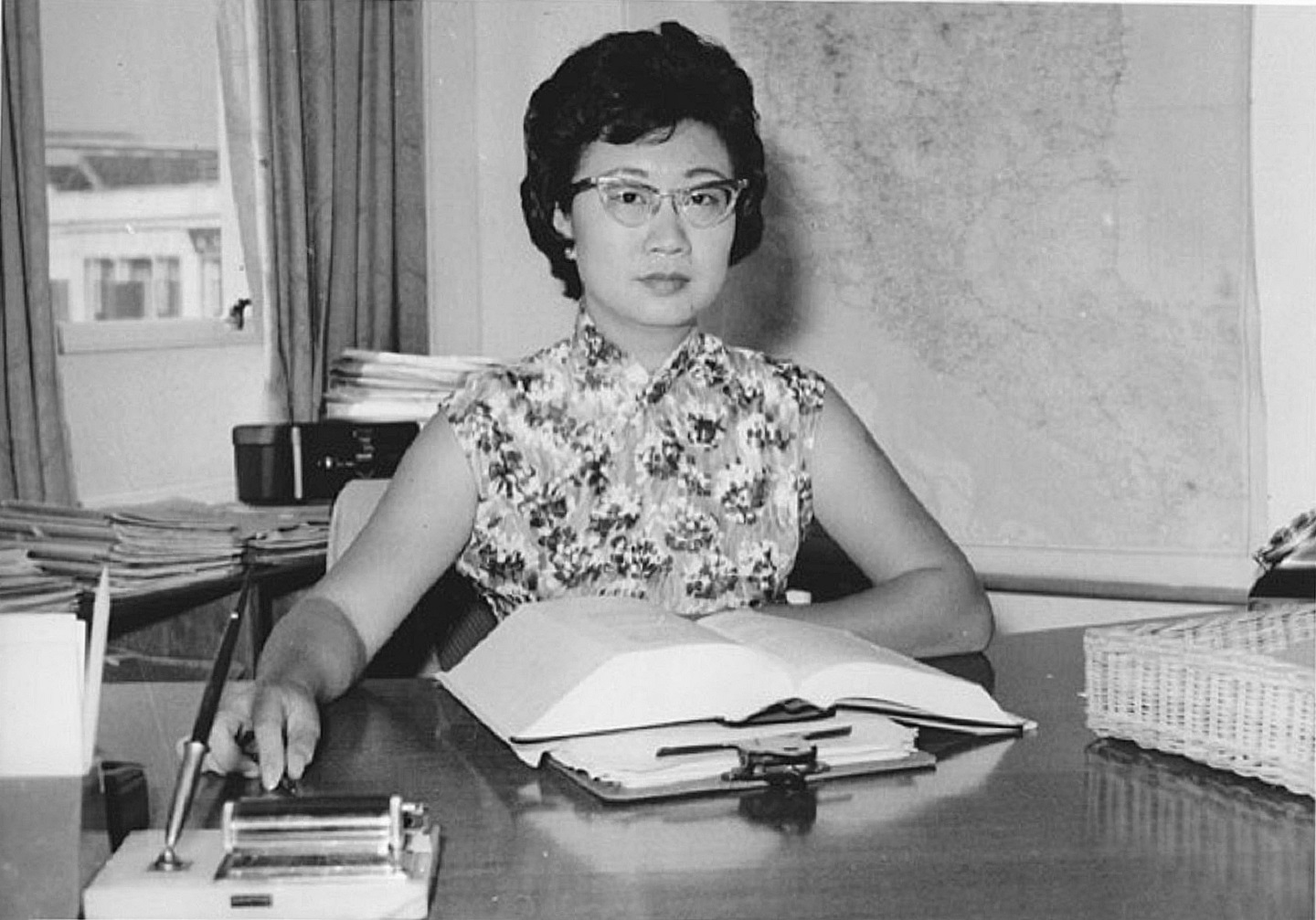
Gender was no issue for Gunn, the first female lawyer to join Bannon & Bailey in KL (All photos: Gunn Chit Wha)
When giving advice, Toh Puan Gunn Chit Wha often begins with, “In life…” So, it would not be out of place to use those same words to start the compelling memoirs of this 92-year-old Malaysian doyenne.
In life, some people are born into privilege. They may feel entitled or guilty, or even squander what falls into their lap. Gunn did none of that. Aware since young that man proposes but God disposes, she made the most of her English education, built a successful legal career, undertook public service and worked hard to achieve what she wanted.
The oldest of six children in a “different type of family”, Gunn could live the way she did at an epochal period in the country’s history particularly because of the foresight and support of her father, Tan Sri Gunn Lay Teik, the second Malayan High Commissioner to Australia and New Zealand in 1957.
Lay Teik’s maternal grandfather, Cheah Chen Eok, erected the Queen Victoria Memorial Clock Tower in Penang to mark her 60th year of reign over the British Empire. In Waves of Independence, Gunn writes that her father, who had a degree in natural sciences from the University of Cambridge, wore British-style suits with a necktie and top hat but maintained his Straits-born Chinese identity.
wavesofindependence.jpg
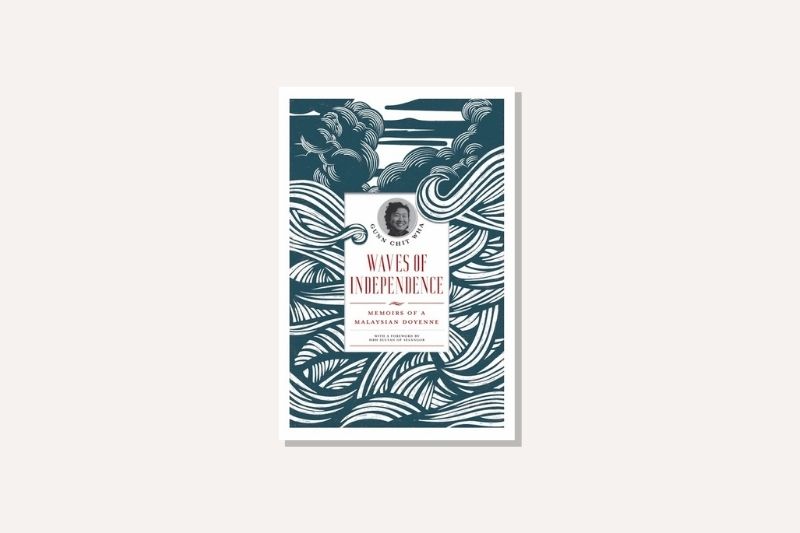
This early exposure to a “hybrid existence” would lead her to straddle East and West too, from when she sailed off on a Dutch steam-powered troopship for Cambridge in 1946 to living with family friends in England, having schoolgirl adventures and trips around Europe, forming lasting friendships with British royalty and the offspring of other noble families, and enjoying holidays in Tiffany — the house her parents bought in England (but have since sold).
Gunn was one of the few female law undergraduates at Girton College at the time. Another was Kwa Geok Choo, a Queen’s Scholar. “I remember smelling the wonderful aromas of her cooking when she made meals for Lee Kuan Yew upon his visits to our college.” The pair married after Kwa returned to Singapore to practise law.
Waves was launched in Kuala Lumpur on Oct 13 by the Sultan of Selangor. It took almost two years to complete and was published in Singapore by Epigram Books.
Gunn has always enjoyed telling stories of her family, who hailed from Eng Choon county in Fujian, China, and of growing up in colonial Malaya.
Ruby Lau says her mother started writing in longhand some of her memoirs during her eighties but she did not have the discipline to structure and complete them. Hence, her brother Andrew commissioned the book to provide some sort of end-date for completion. Her notes were typed out and sent to ghost writer Eva Wong Nava, who replied with questions.
group_with_parents_and_siblings.jpeg
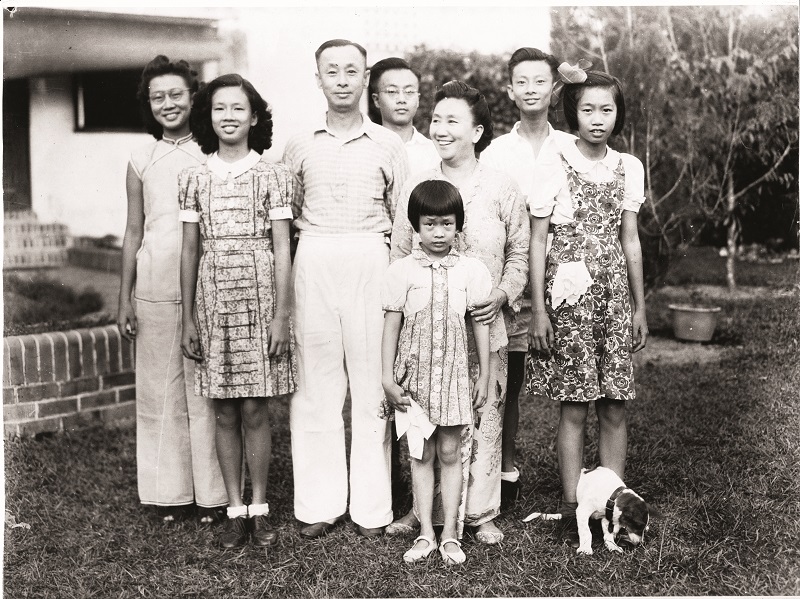
“There were many stories untold because her memory had begun to fade when we started the project. She had also thrown away most of her diaries, so piecing together a chronologically structured book would have been very difficult. Eva decided it would be best to try and get as many stories from her that would represent the spirit of her life,” Lau says via email.
She had sold her Montessori school in the UK in 2006 so she could come home whenever necessary. Now a consultant and trainer of Montessori teachers, she lives with Gunn, who had a mild stroke last year.
What comes across in Waves is a spirited woman at ease with the perks of privilege but, having gone through war, knows hunger and want. Father had also taught the brood not to waste and to live within their means.
Being frugal is being respectful of the value of money, Gunn writes. “Do not mistake frugality for stinginess … If we could save five cents by walking the extra distance, we would.” However, when it comes to lavishing loved ones with the comforts of life, she does not hold back.
Into a blessed long life, some rain must fall. Gunn’s idyllic childhood came to an end when Japan invaded Malaya in 1941. Evacuation to Singapore, joining the hordes ordered to return to the peninsula by the Japanese army and living under the occupation was a time of fear, pain and misery. She resumed her studies after the war and left for university soon after.
In 1952, a letter arrived for the new graduate: In it was a one-way ticket home from Father. Two years later, Gunn was called to the bar, becoming one of four female barristers in Malaya, after BH Oon in Penang, PG Lim in Kuala Lumpur and Penang, and Kwa in Singapore.
municipal_council_2.jpeg
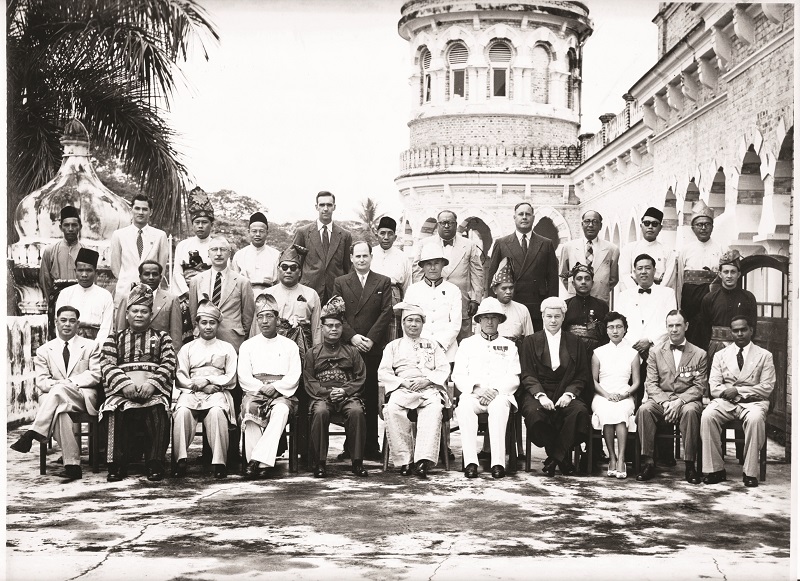
Gender was no issue for Gunn, the first female lawyer to join Bannon & Bailey in KL. But hay fever was, and she had to use a handkerchief to keep out the dust lining books, files and cabinets.
“I never let societal prejudices about women put me down,” she would say at end-1954, when a journalist reporting on her nomination for Municipal Councillor for the Petaling Ward wrote about the Triple Alliance of Umno-MCA-MIC dropping a “pretty bombshell” and noted that she wore a “navy blue cheongsam”.
Gunn did not care for politics but was interested in the welfare of the “Malayan people, my people”. She served on the council for three years. After her tenure, she married Lau Foo Sun, a civil and structural engineer with the Public Works Department.
As someone who considers freedom and independence “the two precious human states”, did Gunn think women should aspire towards that? “I do not believe she would advocate the aspiration, but a more level and equal playing field,” says Lau. “She was frustrated that male lawyers had the advantage of being invited to join boards and felt that had she been male, she would have been invited as well.
“She broke many glass ceilings facing women then. It was her personal choice, as her sisters — who were also educated — chose not to pursue a career and were content with being housewives.”
in_cheongsam_with_foo_sun_1.jpg
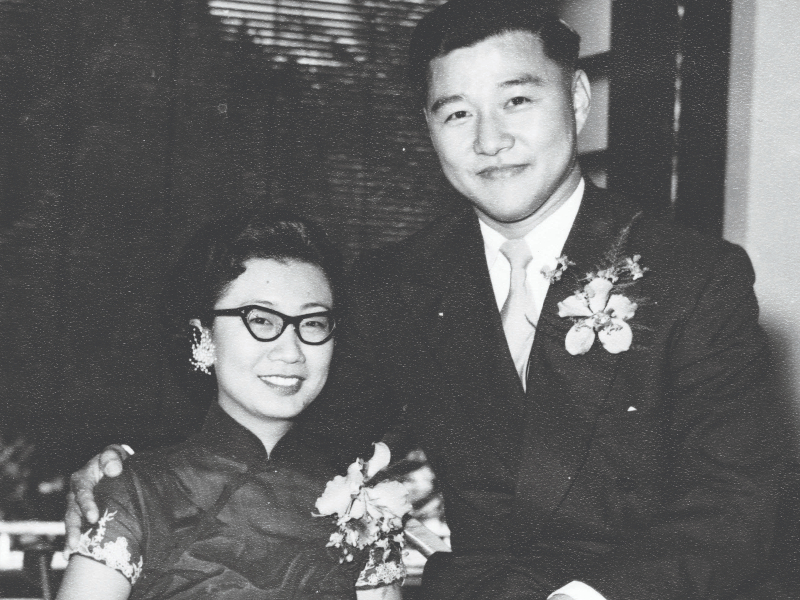
Lau says that having gone through tough times, her mother worked hard to build her career and life with what opportunities were presented to her. “She often mentioned how few women there were working in those days. She did not set out to prove herself. She appreciated her privileged position of being educated and used that to further her life instead of simply sitting back and being a homemaker. She has always been interested in plants and flowers and would have loved to have been a botanist.”
True to one who speaks her mind, Gunn calls out various people in Waves: a grand-uncle who got richer as her mother’s share of the family wealth shrank; a doctor who misdiagnosed her mother’s illness, resulting in her sudden demise the evening before the May 13, 1969 riots; the Malaysian government for committing “breach of copyright” of the architectural plans Foo Sun had drawn up to develop schools in the country.
Did she hesitate to name names? “She only hesitated on those that may be politically incorrect. At this age, there is no harm speaking her mind and it is all part of one’s viewpoint of history,” says Lau.
“The lawsuit cost us beyond our finances.” But in life, one can sometimes do something right with the wrong results, says Gunn, who talks about the human spirit overcoming tragedy and resilience alleviating bad luck — lessons gathered over a lifetime.
After bad property investments in the US, she and Foo Sun sold whatever they owned and used the money to embark on “Crystal” tours of the world. He founded the Malaysian chapter of the Chaîne des Rôtisseurs, an international association of gastronomy founded in Paris, and was its president until his death in 2011 from bile duct cancer. Gunn was invited to join the German chapter and was inducted in Berlin.
wine_and_dine_2.jpeg
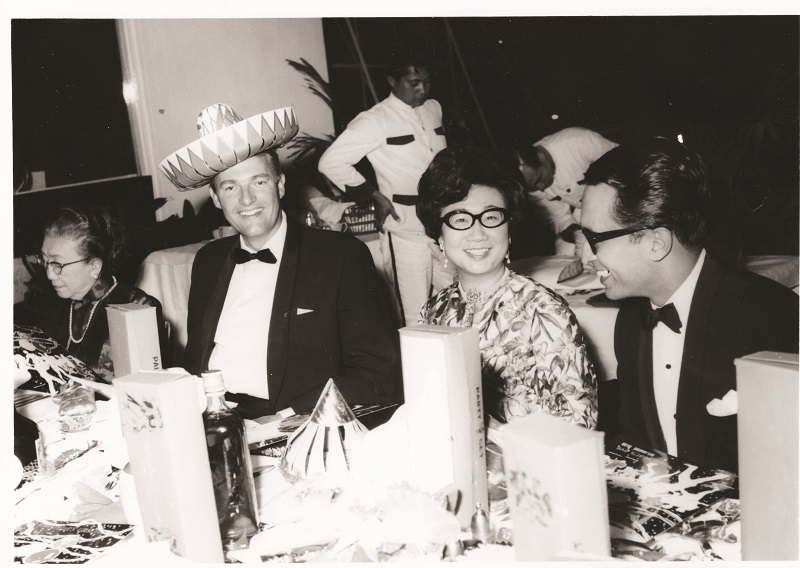
So began another chapter for bon vivant Gunn, who found a culinary partner in her husband. They organised food events, wined and dined on land and sea, and made new friends around the world. “My mother loved to travel and did so many times a year. She still yearns to go places, even now,” says Lau.
Many words have been used to describe Gunn: independent, brave, efficient, capable, organised, reliable, open-minded, resourceful … Which says it best for her daughter?
“It’s very difficult to choose one as she is all of them. I have always been in awe of her ability to run her law practice and home, do charity work, prepare meticulously for large parties, which were thrown regularly at home after work, as well as being a caring mother. Probably ‘capable’, as it would include many of the other words.”
Lau wrote home conscientiously while studying in England. Gunn would reply every week with news from Malaysia and included a copy of her daughter’s letter that she had corrected for grammar and spelling! “I did not mind then but looking back, I think it did result in my struggle and confidence to write,” she says.
Lau and her siblings Paul and Andrew salute mum in their own words in Waves. Paul remembers Gunn splitting her time between Malaysia and the UK when the three of them were studying abroad. “She combined her trips with memorable holidays [that] contributed to each of us being to some degree Francophiles!” Andrew says that without his parents’ love of making friends around the world, “I think my life and thinking would be different today: dare I say that it would be very insular”.
With a life well lived, how would Gunn want to be remembered? “A caring and loving mother and grandmother. A dedicated and responsible daughter. A committed and passionate lawyer. One who stood by her principles to not participate in the greasing of palms that became so prevalent in the country she served,” says Lau.
This article first appeared on Nov 2, 2020 in The Edge Malaysia.


